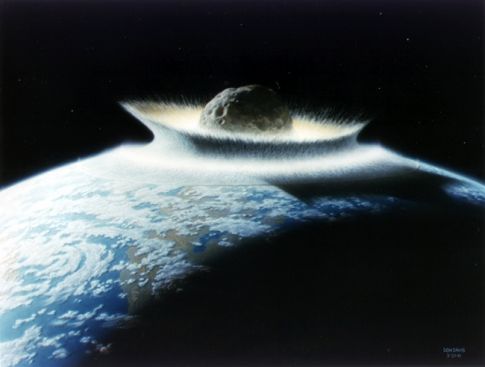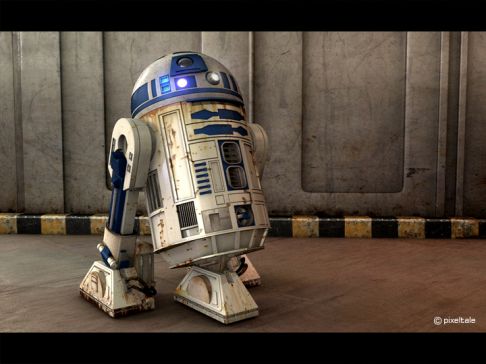Well done to Nature of Time contestant Saibal Mitra. His essay "Can we change the past by forgetting?" which you can download here (pdf) has hit the headlines, appearing in New Scientist.
The article by Marcus Chown sums up Mitra's idea that one might (in very idealised circumstances) be able to switch to a different parallel universe to avoid an impending disaster, like an asteroid impact.

Ouch
From Chown's article:
"To understand how the many-worlds scenario could allow a future disaster to be avoided, says Mitra, consider a hypothetical machine intelligence that regularly backs up its memory. If it encountered a glitch, for example, it could reset its memory to, say, the previous day's state.
"Imagine that on learning of an impending disaster - perhaps a catastrophic asteroid strike on its planet - the machine resets its memory. Now, an observer sat next to the machine can verify that the "same machine" will still face disaster after the reset. But from the perspective of the machine's reset memory, the state of the universe in the many-worlds scenario becomes "undetermined". After all, for all the machine knows, the reset probably occurred for a mundane reason, such as a crash of its operating system.
"The next part defies our natural instincts: according to the many-worlds interpretation, all of these undetermined possibilities actually exist and open up to the machine. Even though it followed one particular history up to its resetting, it can be dealt a new card, says Mitra. So, from its unwitting perspective, the machine could "switch" to a parallel universe."

If R2D2 reset his memory, could he have saved us from ever meeting the Ewoks?
Hmm... I'll be honest, I'm not sure I buy that all the undetermined possibilities of the machine's measurements re-open just because the machine forgot that it made the measurements. (Would that be the equivalent of Schrodinger's cat reverting to being both dead and alive in my universe, because I forgot I'd already observed its fate?) Why does this amnesia change the machine's entire reality, when it's already entangled on one timeline? And even if it did, on re-measuring, I don't see it gains very much--the machine just re-splits again, with some future versions escaping disaster while others experience disaster, which seems pretty much the same as before.
But our Max Tegmark has commented positively on the paper in the article, saying that it could potentially apply to "future beings whose minds are quantum computers." (He may well be thinking back to a recent FQX discussion about how in the future humans may meld with machines.)
Anyway perhaps I'm missing something. I'm willing to re-read Mitra's essay to try and dis-entangle (pun intended) what it means. Grace Stemp-Morlock's article on parallel universe pioneer (and Cold War "Dr Strangelove") Hugh Everett's tumultuous life may help too.